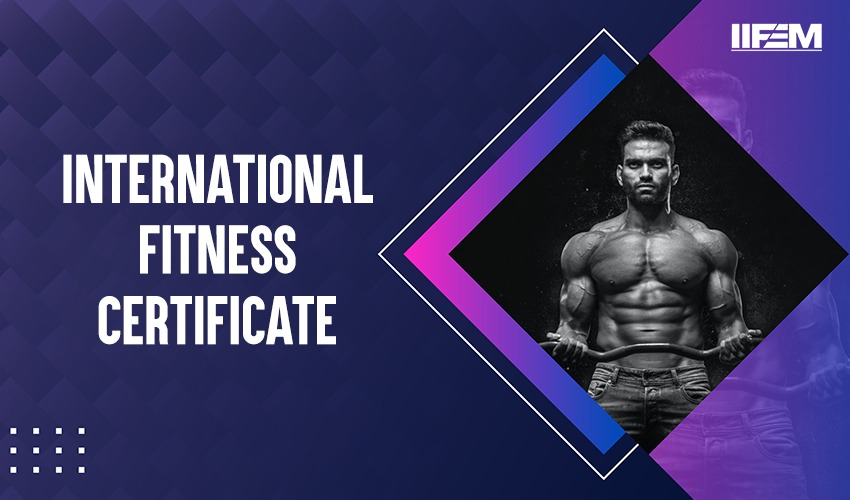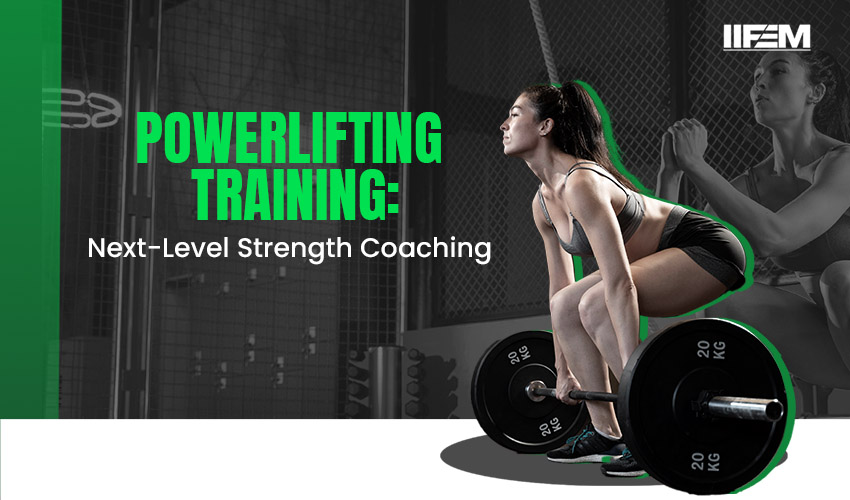
5 Powerlifting Training Mistakes You're Probably Making
Powerlifting is a demanding sport that requires precision, patience, and proper technique. There are more than 10,000 powerlifters in India (Indian Powerlifting Federation) However, even experienced lifters may unknowingly make mistakes that hinder their progress and increase their risk of injury. To help you optimize your powerlifting workout, let's explore five common mistakes that powerlifters often make and how to correct them.
1. Neglecting Proper Warm-Up
A common mistake in powerlifting training is skipping or rushing through the warm-up. Proper warm-ups are essential to prepare your muscles and joints for the intense lifting sessions ahead. Without adequate warm-up, you risk straining your muscles and reducing your overall performance.
Tip: A thorough warm-up should include dynamic stretches and lighter sets of the movements you'll be doing in your powerlifting workout plan. This will enhance mobility and improve blood flow to your muscles.
2. Poor Form on Basic Lifts
Powerlifting focuses on three core lifts: the squat, deadlift, and bench press. A common mistake is neglecting proper form in these lifts, often due to impatience or the desire to lift heavier weights. Using improper technique can lead to injuries and hinder long-term progress.
Tip: Prioritize good form over lifting heavier weights. Focus on maintaining a neutral spine, engaging the core, and using full range of motion in every lift.
3. Overtraining Without Adequate Recovery
Another mistake is overtraining, often due to the eagerness to increase strength. Powerlifting requires sufficient rest between sessions to allow muscles to recover and grow. Without proper recovery, you increase the risk of fatigue, burnout, and injury.
Tip: Incorporate rest days into your powerlifting program to allow your muscles to recover. This will enhance performance and reduce the chances of overuse injuries.
4. Inconsistent Programming
Jumping from one powerlifting workout to another without a structured approach can cause confusion and hinder progress. A powerlifting workout plan should be consistent and focused on gradually increasing strength. Without a structured routine, progress may stall or regress.
Tip: Stick to a structured powerlifting program that includes progressive overload, proper periodization, and balanced volume. This ensures consistent improvement and avoids overtraining.
5. Ignoring Accessory Exercises
Many lifters focus exclusively on the main lifts and neglect accessory exercises. While the squat, deadlift, and bench press are essential, accessory movements like lunges, pull-ups, and overhead presses are crucial for improving overall strength, stability, and muscle balance.
Tip: Add accessory exercises to your powerlifting routine to improve weak points and prevent muscular imbalances. These exercises help support the main lifts and reduce the risk of injury.
Enhance Your Career with IIFEM
For those seeking to enhance their powerlifting training and elevate their career as fitness professionals, IIFEM (International Institute of Fitness Excellence and Management) offers a variety off fitness courses designed specifically for trainers. IIFEM also offers online fitness trainer courses, allowing trainers the flexibility to learn at their own pace while gaining valuable knowledge on creating personalized powerlifting workout plans and mastering powerlifting techniques.
In addition to powerlifting-focused programs, IIFEM offers other essential courses for trainers, such as strength and conditioning courses, corrective exercise programs, and nutrition coaching certifications. These courses are tailored to help trainers build well-rounded skills and support clients in achieving their fitness goals. With expert guidance from IIFEM’s seasoned trainers, trainers can learn to refine their technique, improve client performance, and confidently progress in the fitness industry. Whether you are just starting or looking to expand your knowledge, IIFEM provides the resources necessary for success.
Faqs
1. Why is warming up so important in powerlifting?
A proper warm-up prepares muscles, joints, and the nervous system for heavy lifts. Skipping it increases injury risk and reduces performance. IIFEM’s powerlifting training programs emphasize structured warm-ups to enhance mobility, strength, and lifting efficiency.
2. What happens if I use poor form in powerlifting?
Incorrect technique in squats, deadlifts, or bench press can cause injuries and slow progress. Prioritizing form over weight ensures long-term strength gains. IIFEM’s courses teach correct lifting mechanics, helping lifters master safe and effective execution.
3. Can overtraining affect my powerlifting progress?
Yes. Overtraining without proper rest leads to fatigue, stalled progress, and higher injury risk. Recovery is as crucial as lifting. At IIFEM, trainers learn programming strategies that balance intensity and recovery for sustainable strength development.
4. How does inconsistent programming impact results?
Constantly switching routines without structure hinders progress and strength gains. A consistent powerlifting program with progressive overload is key. IIFEM teaches evidence-based programming methods, ensuring trainers and lifters achieve measurable, long-term results.
5. Are accessory exercises necessary for powerlifting?
Yes. Accessory movements like pull-ups, lunges, and rows strengthen weak points, improve stability, and prevent muscular imbalances. IIFEM emphasizes accessory training in its powerlifting modules, helping lifters support their main lifts and reduce injury risk.
Category
Recent Blog

Why is insulin neede... Read more
July 05,2023
10 Tips for Strength... Read more
August 14,2023
Sample Strength and ... Read more
September 06,2023
Why are some lifters... Read more
September 15,2023
Why do Barbells and ... Read more
September 22,2023
Secret Routine to Bu... Read more
September 26,2023
When to use Insulin,... Read more
September 28,2023
Why lifters should u... Read more
September 29,2023
What is power traini... Read more
October 09,2023
The Future of Fitnes... Read more
October 17,2023
Why Pursue a Fitness... Read more
October 21,2023
Career Paths for Cer... Read more
October 31,2023
Elevating Your Perso... Read more
November 21,2023
Gym Safety Correctiv... Read more
December 26,2023
5 Different Types of... Read more
December 27,2023
Elevate Your Fitness... Read more
December 28,2023
Embark on Your Fitne... Read more
January 24,2024
Mastering Nutrition ... Read more
January 24,2024
Building Strength wi... Read more
January 27,2024
Boost Your Career: B... Read more
January 27,2024
7 main reasons why y... Read more
February 15,2024
Unlocking Essential ... Read more
February 19,2024
Unlock Your Fitness ... Read more
February 20,2024
Unveiling the Path t... Read more
February 28,2024
How to choose the ri... Read more
February 29,2024
Strengthening Weak S... Read more
March 20,2024
How a Fat Loss and E... Read more
March 27,2024
Transformative Insig... Read more
March 27,2024
The Importance of a ... Read more
April 10,2024
Mastering the Art of... Read more
April 22,2024
Unlocking Your Caree... Read more
April 23,2024
The Evolution of Per... Read more
May 27,2024
Elevate Your Fitness... Read more
May 28,2024
Choosing the Right P... Read more
June 25,2024
Role of Protein in F... Read more
June 26,2024
Career Opportunities... Read more
June 27,2024
How Fitness Certific... Read more
July 29,2024
Building a Successfu... Read more
July 30,2024
Qualities to Look fo... Read more
August 21,2024
How Gym Trainer Cert... Read more
August 28,2024
How Fitness Trainer ... Read more
September 20,2024
The Role of a Person... Read more
September 23,2024
Immunity Boosting Pl... Read more
October 17,2024
How Fitness Trainers... Read more
October 22,2024
Transform Your Fitne... Read more
October 28,2024
Certified vs. Uncert... Read more
November 22,2024
The Role of Nutritio... Read more
November 25,2024
The Importance of Co... Read more
December 28,2024
How Personal Trainer... Read more
January 24,2025
Essential Online Nut... Read more
January 25,2025
How Personal Trainer... Read more
January 27,2025
5 Immunity-Boosting ... Read more
March 01,2025
What to Look for in ... Read more
March 01,2025
The Impact of a Pers... Read more
March 27,2025
The Benefits of Beco... Read more
March 28,2025
How to Choose the Ri... Read more
April 24,2025
Turbo Test: Unlockin... Read more
April 25,2025
How to Build a Perfe... Read more
April 29,2025
10 Powerful Yoga Asa... Read more
May 24,2025
How to Track Your Ca... Read more
May 26,2025
Fast-Track Your Fitn... Read more
May 28,2025
Top Career Paths You... Read more
May 29,2025
10 Reasons to Enroll... Read more
June 23,2025
How to Turn Your Pas... Read more
June 28,2025
Trainer vs Coach Wha... Read more
June 30,2025
How IIFEM Plans to C... Read more
July 01,2025
Go Global with IIFEM... Read more
July 11,2025
How to Avoid the Top... Read more
July 22,2025
No English No Proble... Read more
July 25,2025
How Education Can El... Read more
August 19,2025
Real Stories from II... Read more
August 20,2025
Why Gym Owners Prefe... Read more
August 26,2025
How Science Based Tr... Read more
August 31,2025
Why an International... Read more
September 10,2025
What Makes IIFEM the... Read more
September 15,2025
How to Build a Succe... Read more
September 22,2025
Your Passion and Our... Read more
September 27,2025
Fat Loss & Endurance... Read more
October 16,2025
Benefits of Whey Pro... Read more
October 21,2025
Strength and Conditi... Read more
October 27,2025
From Trainer to Gym ... Read more
October 29,2025
Powerlifting Trainin... Read more
November 12,2025
Pre-Workout vs Post-... Read more
November 17,2025
Building a Hybrid Fi... Read more
November 19,2025
Why Most Weight Loss... Read more
November 21,2025



